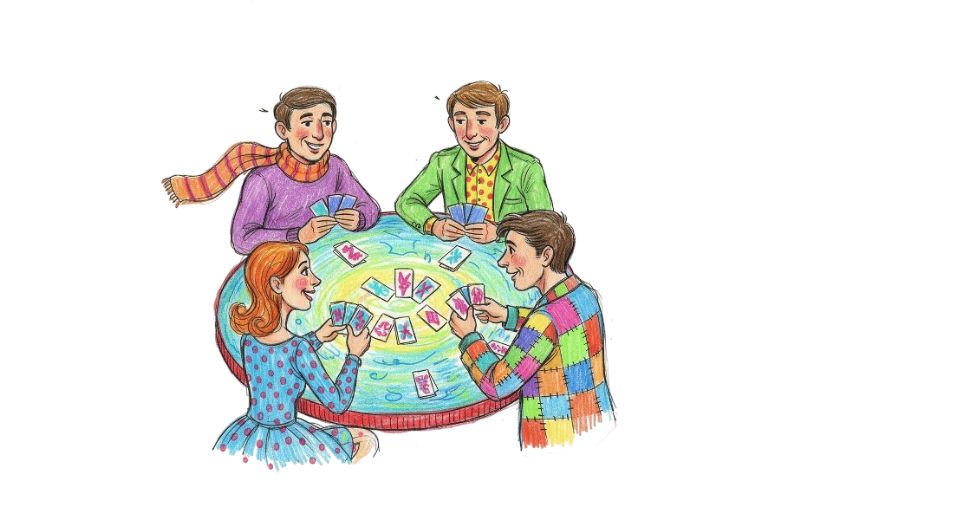
Sep 09, 2025

The recent report on the playing cards market by Metastat Insight introduces a story that extends beyond traditional debate about consumer products. Playing cards, while built on centuries of heritage, have evolved into tokens of culture, recreation, and strategy in diverse geographies. In this industry, a highly intertwined mix of artistry, material technology, and consumer interaction is the context within which an increasingly changing landscape unfolds. Though frequently seen as a common household object, the playing card has acquired greater status as an item that embodies both heritage and present-day imagination. The market has been influenced by an abiding love affair with socialization, where the circle around a deck of cards remains in demand.
That tenacity has not dissipated with contemporary lifestyles; rather, the product itself has evolved, entering new realms of digital interfacing, collector value, and specialized design. That evolution highlights the incredible scope of the market, in which classic games sit alongside alongside limited print decks manufactured for collectors or for marketing events. Meanwhile, manufacturing techniques have gone through a refinement process, with increased concern for longevity, touch quality, and environmental responsibility. Each element contributes to a broader story of transformation, one that takes the function of cards far beyond mere entertainment. The visual element has taken on increased importance, with manufacturers pushing the boundaries of stark imagery, distinct textures, and work with artists. This emphasis on presentation has brought the product to the level of something desired, with appeal not just to committed devotees but to people who perceive decks as a form of personal expression.
Branding attempts to keep pace with this trend, with producers emphasizing design stories and artistic collaborations in order to gain notice within busy lifestyle and leisure markets. A once-standard deck now materializes in marketplaces as a talking point, filled with value that bridges nostalgia and current style. Cultural diversity still enriches the environment. Distinct areas have their own traditions, which govern consumer attitudes and encourage variations in deck design, visual presentation, and thematic style. This makes the playing cards business never uniform but rather a mosaic of practices and inclinations.
While in certain arenas focus is still grounded in family play, in others the deck transforms into an ornament of artistry or a collectible with enduring value. This pluralism of function illustrates a capacity to remain current across varying consumer segments. Distribution channel innovation has further expanded the dissemination of playing cards. Global online marketplaces exist alongside specialty stores, offering room for both long-time manufacturers and small, independent producers. Crowdfunding drives, boutique houses, and niche designers have all carved out niches within this segment, facilitated by consumer affection for novelty and narrative. With fans ready to clamor for exclusivity, small print runs and specialty collections have become important in generating interest.
The face-to-face contact between artists and consumers has added vitality to the industry, facilitating experimentation and promoting risk-taking that may not have been feasible under more traditional retail frameworks. Material concerns have also impacted marketplace activity. Sustainability has emerged as a topic of immense discussion, inducing manufacturers to look into environmentally friendly inks, biodegradable packaging, and sustainable card stocks. Although such modifications require technical changes, they find strong appeal with buyers who are looking for ethical congruence in their consumerism. As eco-awareness tends to disseminate further, these innovations carry more significance, providing further layers of value to manufacturers to place stress on. The focus on ethical production also intersects with branding, as firms present themselves as trailblazers sensitive to tradition as well as environmental stewardship.
The confluence of bodily and virtual culture has provided new spaces for investigation. Card-based games have been the impetus for mobile iterations, and online communities enable the development of dedicated niche fan bases focused around individual designs or mechanics. These intersections serve to indicate how a heritage product continues to be inextricably embedded in modern patterns of participation. The combination of haptic pleasure with online visibility has contributed toward increased exposure, bringing attention to both new releases and heritage decks. Aside from recreational consumption, the inclusion of playing cards in wider cultural discussions art, fashion, design illustrates their capacity to seamlessly integrate into different environments. Collectability continues to be an identifying feature of the market's cultural aspect.
Limited runs, signed sets, or partnerships with popular individuals have instilled an overwhelming sense of exclusivity. For most buyers, a deck is no longer a playing device; it is now a reflection of individuality or an object with a lasting emotional appeal. Such attitudes drive market dynamics, as buyers voluntarily seek out options that resonate with their identity or personal preference. This fan culture imbues buying and selling cards with layers of meaning, solidifying the industry's hold on attention across age cohorts and demographics. From all these facets, the playing cards sector shows fortitude and adaptability. Metastat Insight, in its presentation, identifies an industry in which heritage and innovation converge, where design and cultural relevance thrive together, and where consumer interaction continues to be as energetic as ever.
This is a market in which an old product is constantly gaining new relevance, maintaining its hold over generations and redefining its place in both leisure and lifestyle. The history of playing cards is not unchanging but one of constant reinvention, guaranteeing their future place in individual and communal space.
Drop us an email at:
Call us on:
+1 214 613 5758
+91 73850 57479